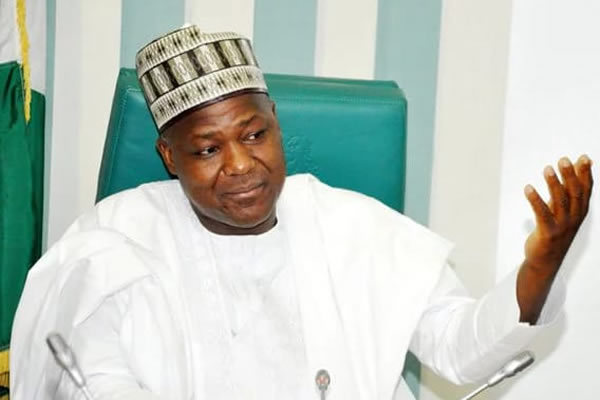- Nigerians Not Feeling Impact of Development Banks
The Speaker of the House of Representatives, Mr. Yakubu Dogara, said on Tuesday that Nigerians were not feeling the impact of Development Finance Institutions established by the Federal Government to serve as a catalyst for development.
He noted that despite the huge financial resources at the disposal of the institutions, they had made little impact over the years to grow Micro, Small and Medium Enterprises, among others.
Some the country’s DFIs include the Bank of Industry, Bank of Agriculture, Federal Mortgage Bank of Nigeria, Nigerian Export-Import Bank, The Infrastructure Bank and National Economic Reconstruction Fund.
Last week Wednesday, President Muhammadu Buhari announced his administration’s plan to recapitalise the BoI and the BoA next year by making a provision of N15bn in the budget for the two institutions.
Dogara on Tuesday spoke at the opening of a hearing by an ad hoc committee of the House on the dwindling efficiency of the DFIs.
He stated that the House would support the government’s efforts to strengthen the institutions to be able to deliver on their core mandates.
Dogara cited the example of SMEs, which he said had not been able to access loans for development despite the presence of the DFIs established primarily to serve this purpose.
The Speaker added, “The DFIs are established to serve as catalysts for the development of Micro, Small and Medium Enterprises and agro-based businesses. In most developing countries, the DFIs have been the springboard on which such countries became economy giants.
“The financial conditions of many development banks have deteriorated over the years owing to a number of factors such as the prevalence of macroeconomic instability, low repayment rates by clients, and significant shortage of investible funds.”
The committee is chaired by a member from Anambra State, Mr. Emeka Anohu.
But, the BoI, argued that the loans it offered to small-scale enterprises recorded 95 per cent performance over the years.
The bank’s acting Managing Director, Mr. Waheed Olagunju, said the BoI’s performance was above the threshold set by the Central Bank of Nigeria, one of its key financiers.
“We got a six-year intervention fund of N535bn from the CBN, running from 2010. And the performance of our loan is 95 per cent, which is over and above the CBN’s threshold of five per cent, and the industry average of 11 per cent,” Olagunju explained.
He called for stronger private sector involvement in the economy to drive industrialisation as against leaving it in the hands of the government alone.
The BoI boss, however, advised that the country must address all the social challenges associated with industrialisation.
Olagunju added, “When investors come in, how they are treated at our embassies in their countries when seeking for visas matters a lot. How the airport security treats them, how the taxi driver and hotel receptionists receive them in Nigeria, and lastly, how bureaucrats handle their files while pushing for investment opportunities, all determine whether they will bring in the money or not.
“So, the government has very little to do with regards to the attitude of individuals, because no profession preaches corruption.”
He disclosed that the bank faced initial challenges, like the failure of the administration of former President Olusegun Obasanjo to release the N50bn take off grant it promised the BoI.
“We didn’t get up to the N50bn promised by the government. So, we decided to become a self-funding institution by sourcing our funds and loan them out to small and medium-scale industrialists,” he said.
The committee later summoned all the DFIs to appear before it on January 17 with full disclosures of the funds they had received from the government since their creation.

 Naira4 weeks ago
Naira4 weeks ago


 Naira4 weeks ago
Naira4 weeks ago


 Naira3 weeks ago
Naira3 weeks ago


 News4 weeks ago
News4 weeks ago
 Travel4 weeks ago
Travel4 weeks ago




 Naira4 weeks ago
Naira4 weeks ago


 Jobs3 weeks ago
Jobs3 weeks ago
 Naira3 weeks ago
Naira3 weeks ago






















